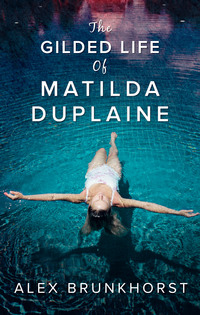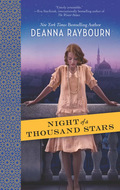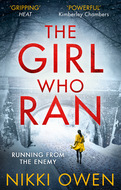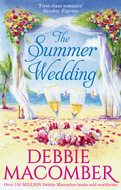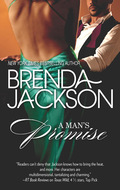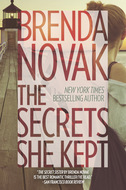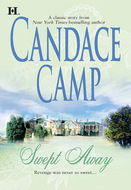Raamatut ei saa failina alla laadida, kuid seda saab lugeda meie rakenduses või veebis.
Loe raamatut: «The Gilded Life Of Matilda Duplaine»
The story begins with a dinner party invitation…
When young journalist Thomas Cleary is sent to dig up quotes for the obituary of a legendary film producer, the man’s eccentric daughter offers him entrée into the exclusive upper echelons of Hollywood society. A small-town boy with working-class roots, Thomas is a stranger in this opulent world of private jets and sprawling mansions.
Then he meets Matilda Duplaine.
Matilda is a beautiful and mysterious young woman who has never left the lush Bel-Air estate where she was raised. Thomas is immediately entranced by the enigmatic girl, and the two begin a secret love affair. But what starts as an enchanted romance soon unravels a web of secrets and lies that could destroy their lives—and the lives of everyone around them—forever.
A modern-day Gatsby tale filled with unforgettable characters and charm, The Gilded Life of Matilda Duplaine is a sparkling love letter to Los Angeles and a captivating journey beyond the golden gates of its most glamorous estates. Timeless, romantic and utterly absorbing, it is a mesmerizing tale of privilege, identity and the difficult choices we make in the pursuit of power.
ALEX BRUNKHORST is a novelist and a real estate agent specialising in multimillion-dollar estates for Los Angeles’s wealthiest professionals. She is also the founder of the popular luxury life-style website Bungalux.com. The Gilded Life of Matilda Duplaine was inspired by Alex’s glimpse into the world of extreme wealth and privilege. She is a graduate of Georgetown University and lives in Los Angeles. Follow her on Twitter @alexbrunkhorst1, or visit her website at www.alexbrunkhorst.com


To John
Contents
Cover
Back Cover Text
About the Author
Title Page
Dedication
One
Two
Three
Four
Five
Six
Seven
Eight
Nine
Ten
Eleven
Twelve
Thirteen
Fourteen
Fifteen
Sixteen
Seventeen
Eighteen
Nineteen
Twenty
Twenty-One
Twenty-Two
Twenty-Three
Twenty-Four
Twenty-Five
Twenty-Six
Twenty-Seven
Twenty-Eight
Twenty-Nine
Thirty
Thirty-One
Thirty-Two
Thirty-Three
Acknowledgments
Endpages
Copyright
One
The tinkle of an antique servant bell announced my arrival.
The shop was so cluttered with priceless art and centuries-old furniture that maneuvering among them was impossible. I stood in place, hoping someone would come to my rescue. Sixty seconds later, she did. I did not hear the opening or closing of a door, and there was nothing to indicate how she had entered the room. Had she been watching me from behind the ceiling-height Asian room divider she would have seen me grasping for distractions—my cell phone, my reporter’s notebook, a feigned interest in a chalk drawing that hung on the wall.
Nothing I had read could do Lily Goldman justice. She was in her midfifties, but she could have passed for forty-five. Her eyebrows were tweezed in an arched manner, and her blond hair was expertly coiffed in a tame bouffant that looked as if she had come from a salon. Her face was small and refined save for a prominent nose that belonged on a woman twice her size. It was her most striking feature, one that a less self-confident woman of means would have done away with years ago through plastic surgery.
“May I help you?” Lily asked. Her voice was surprisingly low, and it had a hint of a lady who smoked too much—though I was certain Lily had never picked up a cigarette in her life. Her breeding was too fine for that.
I discreetly rubbed my right hand on my pant leg, hoping to dry it. I reached over an antique oak writing desk, where my proffered hand hung in the air. She looked at it blankly.
“Yes, I’m Thomas Cleary. I’m a reporter, for the Times.”
For the first time she made eye contact, and I thought I detected a slightly favorable response, but then:
“I hate reporters. I never speak to the press,” she said.
“You must be Ms. Goldman.” Phil Rubenstein, my editor, had warned me about Lily Goldman’s disdain for journalists before sending me on this mission. I got the distinct impression he thought it would be fruitless.
She looked away, focusing on a bronze candlestick in the shape of a bird. She rotated the bird one hundred eighty degrees.
“Birds don’t migrate north, they migrate south. It is autumn, after all. This place is such a mess. I need to speak to the staff. Where did you go to school, Mr. Cleary?”
“You can call me Thomas. I went to Harvard.”
“At Harvard I bet they taught you that birds migrate south for the winter, north for the summer.”
“I recall picking up that tidbit at St. Mary’s, my grade school in Milwaukee.”
“A Catholic boy,” she said with a wry smile.
She waited for me to respond, but I didn’t. I was nervous because I was on what I hoped was my big-break assignment. It was my first and only story on the entertainment beat—a short retrospective on Joel Goldman, who had just passed away.
Despite the fact that we were only steps away from one of Los Angeles’s most bustling intersections, it was strangely quiet in Lily’s shop. I had come here straight from the paper, which was alive with phones ringing, keyboards clicking and frantic deadlines being met. Here, there hadn’t been a single phone call, not a single customer. No car had passed. There was a formal English garden in front, but its chaises were bare, and its birdbath and trees were devoid of birds.
“Were you taught by nuns in Milwaukee? I hear they can be terrible on the self-confidence,” Lily said.
“I was,” I said, nervously shifting my position. The reclaimed wood beneath me creaked. “It was Harvard that wiped away the self-confidence, though. The nuns weren’t so bad in comparison.”
“Milwaukee to Harvard. Quite the journey. Let’s just hope it was a one-way ticket out.”
“That’s still uncertain,” I replied—a gross understatement.
“And Los Angeles? Is this another layover or your final destination?”
“Yet to be determined, as well.”
Lily fixed her eyes directly on me. They were deep set and an extraordinary shade of green.
“Do your parents miss you?”
“My mother passed away a year ago.” The memory was still fresh and I forced down the lump that formed in my throat. “And, yes, my dad misses me. I’m an only child. He wants me to come home and work for the local paper. But a hundred thousand in student loans later I can’t bear to take a U-turn like that.”
“I’m sorry to hear about your mother...and the student loans.”
I detected no judgment in Lily Goldman’s words, but I suddenly felt embarrassed by the fact that I had referenced the death of my mother and my student loans in the same sentence.
“How old are you?” she asked.
“Twenty-six.”
“She died young, then?”
“She was forty-eight. Pancreatic cancer.”
“It must have been devastating.”
Few people had taken this level of interest in my life since my mom had died, and I almost forgot why I was there to see her. I wanted to sit down in the distressed leather chair to my right, light a cigarette and tell Lily Goldman everything—about my mother, who shriveled into a skeleton while I toiled on inconsequential stories thousands of miles away in Los Angeles, a city I hated; about my grade school piano teacher, Sister Cecilia, who whacked my knuckles with an iron ruler; about the kids who used to pick me last for Red Rover.
And I wanted to tell her about Manhattan. What had happened there.
Professor Grandy’s Journalism Rule Number One: Never let your subject change the subject.
“Enough about my situation. I apologize for taking so much of your time,” I said. Even as a young boy I had always shunned attention, particularly from strangers, and here I was escorting Lily into the dark corners of my life rather than visiting hers. “I’m very sorry to hear of your father’s passing. We’re doing a piece on him, and I was hoping you could give me a quote or an anecdote, something that will make the reader know him better—something to remember him by.”
“Ah, yes, my father.”
At first that was all she said. I didn’t blame her, because he was that kind of man. Joel Goldman’s story was as legendary and epic as the movies he had brought to the screen. He had grown up in Nazi-occupied Poland, escaped the gas chamber, passed through Ellis Island as a boy with only a nickel in his pocket and within ten years catapulted his way from reading scripts in RKO’s story department to creating one of the big movie studios.
According to Joel Goldman’s former business associates, Joel had been known for his micromanagement, and that was putting it kindly. When he stepped on set—which he did almost daily—he practiced lines with his leading ladies, he whispered in his directors’ ears, he berated craft services for everything from dry strudel to weak coffee. In the age of typewriters, Joel had been known to tear up entire first acts and shred them to the floor while horrified scriptwriters looked on. He scoured expenses to the penny and had been a ruthless negotiator. As a former studio chairman had anonymously told me over the phone that afternoon, “If Joel Goldman sat across from you and you dropped a penny on the floor, he would pick it up and put it in his own pocket and consider himself the luckier for it.”
My strongest trait as a journalist was not in asking, but in listening. So I waited.
“A hell of a man, my father,” Lily finally said. “The first man to produce a movie that made a hundred million dollars. Can you believe it? He started a movie studio when he was only twenty-eight years old. That’s unimaginable. Nowadays boys your age are pushing mail carts at talent agencies, not winning Academy Awards. That was the golden age of the cinema, of Hollywood. Bogie and Bacall used to come to our house in Cap d’Antibes for tea.”
She smiled at the memory, and then I lost her behind the Asian screen. “Have you been to Antibes?” she called.
“I can’t say I have.”
Lily reemerged. She stared at an imaginary point in the distance through heavily leaded antique glass that distorted the outside garden. “We used to sit on the veranda, watch the boats and sip tea with rum. I know it sounds awful, but it’s the most delightful drink. It was there that Bette Davis auditioned for What Ever Happened to Baby Jane? The sea there is incredible, so green—so different than the sea in Los Angeles.”
“It sounds wonderful,” I said.
“The most exciting time of my life. I often think—well, it sounds silly—but I often think that if we go to Heaven we’ll be allowed to live our lives again, fast-forwarding through the bad times, of course.” She looked away, as if she might have revealed too much to a stranger. “I would go back there. To those times with my father in the South of France. I have no use for Hollywood. I only care for what it bought us.”
She glanced at the notebook, unopened in my hand. I hadn’t written a thing. It might have been nerves, or maybe Lily’s personal memories were like coins she had dropped to the ground by accident. Unlike her father, I could not pick them up while she was steps away from me. It would be stealing.
“Is that the sort of thing you’re looking for?” she asked.
“What?”
“The quote.”
“Yes, that’s perfect.” I scribbled to catch up.
“I figured as much. Intimacy—it’s what we’re all looking for.”
She focused squarely on me again, this time homing in on my clothes. I had picked up the shirt several years earlier in Cambridge at a discount store and had ironed the shirt and pants myself that morning. The result was deep creasing that was worse than if I had let the dryer have its way with them.
“How does the paper allow its reporters to dress like they just came from a late night of too much drink?”
Lily wore all brown—sweater, knee-length skirt and two-inch pumps. But even in its singular color and simplicity the outfit bled money. The ensemble brought to mind a Parisian tailor on hands and knees with pins in her teeth. The only pizazz in the outfit was a substantial ivory necklace. I had only known Lily for a few minutes, but it already made sense. Diamonds could still be bought on the open market; elephant tusks could not.
Lily made a small adjustment to my collar, and her hands rested on my upper spine. It had been a long time since a woman had touched me, and I tightened.
As a reporter I was trained to see the tiniest of clues—those fragments and fingerprints others could only see under a microscope. There was, at that moment, a brief spark in Lily’s green eyes. And then, just as quickly as her eyes bloomed, they withered and went almost black.
I had thought that Lily had been the one to bare her soul in this interview, but instead she had set the course so I would be the subject who revealed too much.
“You’re a very handsome young man. Don’t let poor clothing choices get in the way of that,” she said, before calling out to the other room, “Ethan, come here.”
A few seconds later a slight man around my age entered through the French doors in the back.
“Yes, Ms. Goldman.” He spoke in little more than a whisper, and if his slim-fitting attire was off-the-rack it was off an expensive one.
“Thomas here is going to be attending dinner this evening. Please arrange with Kurt to pick him up.”
“Thank you for the invitation,” I interjected. “But I have a deadline, and I’m not exactly the fastest typist.”
“That’s one thing you’d think the nuns would have done right,” Lily said. “It’s a fabulous group—some of the guests worked with my father and are quite newsworthy in their own rights. I promise you won’t be disappointed.”
In truth, I generally would have forgone a dinner party invitation, but if there was any opportunity for this dinner to beef up my story on Joel Goldman I knew I had to attend. I gave Ethan my address in Silver Lake, an area on the east side of Los Angeles known as a bastion for artists—all of them hipper than I. Ethan arranged for me to be picked up at seven o’clock sharp.
“Good. It’s decided, then,” Lily said. “Thomas, I’ll see you soon. Ethan, make sure everything goes smoothly.”
Lily would soon disappear behind the Asian screen, but just before she did, she turned around and set her eyes on me one more time.
“Once again, I’m sorry about your mother, Thomas. You must be terribly lonely.”
Before I could respond, Lily had vanished among the antiques.
Two
And so that was how it began. Simply, without the fanfare one comes to expect from an evening that turns life’s course from left to right. I called Phil Rubenstein to let him know I would be late with the story. Rubenstein hated slipped deadlines, but once I informed him that I would be joining Lily and a “newsworthy” cast for dinner, he let this one slide a few hours to accommodate the extra research. He then shocked me by changing the story from a one-column to two.
I had only one sport coat—a sales-rack special from a big-and-tall store in Milwaukee. I was tall and broad in the way Midwestern Germanic men are, but I was not big enough to fill out the coat properly, and its fit had always been loose. I was hoping Lily wouldn’t notice. I splashed on some aftershave I had got for college graduation, and I slid my notebook and tape recorder into my jacket’s interior pocket.
At precisely seven o’clock, my building’s downstairs buzzer rang. An Asian man of about fifty, with an expression stern as his handshake, stood at the door.
“I’m Kurt,” he said in the same manner one might use to greet a girl not attractive enough to sleep with.
“I’m Thomas, from the Times.” I added that last part as an afterthought, as if it somehow legitimized me.
Kurt opened the back door of a silver Mercedes sedan and I slid in. It smelled of new leather. I suspected Lily was the type of woman whose cars always smelled of new leather. An Evian water and, coincidentally or not, today’s Los Angeles Times rested in the seat pocket. I opened the paper to the Local section. My one-column article on the proposed 405 Freeway expansion was on page three.
I put the paper back in the seat pocket as we headed west down Sunset Boulevard, toward the sea, as Lily Goldman had called it. I had never been driven by a private driver before and I didn’t know if I was meant to make conversation or sit in silence. I decided to take Kurt’s cue. He didn’t address me once during the hour-long journey; he listened to classical music on the radio and never glanced into the rearview mirror unless it was to change lanes.
Finally, after our long sinuous trip across town, Kurt put on his blinker, preparing for a sharp right into a narrow road that traveled between colossal white walls. A filigree black-iron signpost announced where we were going. The words Bel-Air lit up the twilight in a curious shade of blue-white, the color of an ice-skating rink. The words were written in an old-fashioned glitzy font embellished with curlicues and arcs. It was a font from the days when more meant more.
Bel-Air wasn’t gated, as some Los Angeles communities were. Instead, it was simply known as a place that commoners like me didn’t visit.
We took a soft left and then a sharp right, and then we drove through the winding hills. I opened the tinted window halfway. We were a mere thirteen miles away from my apartment, but the air felt as if it had rolled in from another lifetime. It was foggy and cool, and it smelled of smoke from real chimneys, of lawns freshly cut, of hedges just pruned and of autumn-blooming flowers. Silver Lake reeked of the pavement and the people who slept on it.
The few street signs I made out from the window had regal names, and if you were looking from the street you would think there were no houses here, only thirty-foot hedges, iron gates and video cameras. The tight streets, two-acre parcels and light traffic had the makings of a neighborhood, but there were no sidewalks. From what I could tell, people here didn’t borrow sugar—they sent their drivers to the store for it.
Flowers hung from heavy vines and wept into the narrow streets, squeezing them even tighter. We didn’t have foliage like this in the rest of Los Angeles, and I wondered if the flowers were indigenous to only these six square miles. Perhaps the rain here was different, or maybe even the sun preferred Bel-Air. I reached out my window, and I plucked one of the dew-swept flowers off its vine, allowing it to wither between my thumb and index finger before placing it in my interior jacket pocket beside my tape recorder.
Even as a little boy I had always been fascinated by wealth. I grew up in a working-class family, and while my teenage friends were content playing in the streets in Milwaukee’s rough inner city, I chose my running path along Lake Michigan, where behemoth mansions reminded one of another era, an era when the industry of the Midwest made millionaires. I dreamed of living in those manors with owners who didn’t have a care in the world. At fifteen, when it came time for employment, I eschewed fast food or gas stations. Instead, I worked for an older, wealthy gentleman by the name of Mr. Wayne. I had always been mechanically inclined, so in the evenings my head would be bent over the guts of his expensive hot-rod collection bringing dead cars back to life. In summers, I was a golf caddy at Milwaukee’s most expensive country club, even though it required multiple bus transfers to get to work. And then at Harvard, I was surrounded by wealth unimaginable for a boy from the working class of the heartland. For the first time in my life, money seemed accessible, something I could get. All I had to do was work in the world of investments, as most of my college buddies had done. When it came down to it, though, I had chosen a different path—one that would keep me firmly in the lot of the middle class for the rest of my life.
Old iron gates opened. We hadn’t announced ourselves, but tiny video cameras blinked red in the eyes of the stone lions.
The steep, narrow driveway ended at a cobblestone motor court with an ornate fountain depicting sea nymphs at play. Prehistoric-looking foliage surrounded an old stone Spanish-style mansion. The cacti were ten feet tall and blue lights illuminated trees with spiky leaves and exotic flowers.
I tapped the front door’s heavy knocker. I heard the clackety-clack of heels on a tile floor and the door opened. A house cat with spots like a leopard sprinted across the foyer.
The woman was in her late thirties and dressed for a rococo costume party, not an intimate dinner. Her outfit featured a tortoise-and-feather headpiece, white fur shawl, snakeskin pants so tight they might have been painted on and six-inch ostrich heels. I thought of Lily’s ivory necklace. I wondered if wearing endangered species was a status symbol in all of Los Angeles’s social stratosphere or just this specific circle of it.
“You must be Thomas. Come in. You’re pale. It looks like you could use a drink. And a trip to Tahiti. But we can take care of that later.”
We stood in a two-story entry the size of a ballroom. Red wax candles served as wall sconces and the only man-made light came from an overhead chandelier adorned with dragons and crystals. Juliet balconies above us were empty, but I got the sense that during grander parties violinists played there and during more intimate ones men and women did.
“Everyone, this is Thomas, Lily’s friend,” the woman who answered the door said, leading me from the foyer to a smaller room.
She did not bother introducing herself, but her manner was as theatrical as her attire and her words echoed on the stone. The four other people in the room hushed on cue, and I was embarrassed by their silence, their undeserved stares. In order to divert my eyes, I took in the room’s zebra chairs, antlered sconces and mirrored ceilings, wondering if I had fallen down the rabbit hole.
“Thomas, darling, what are you drinking?” the oddly dressed woman asked.
I scanned the group with the corners of my eyes. There was no Lily. My heart quickened, and I was so nervous I briefly and irrationally thought that I had shown up to the wrong party.
“Sweetheart. Is everything okay?” the woman pressed me, after her question had gone unanswered.
She stood beside the type of formal mirrored bar you would’ve found in a 1920s Art Deco speakeasy in Manhattan. There were no off-the-shelf bottles; liquor was kept in heavy crystal decanters. Sterling silver–framed snapshots surrounded the crystal on all sides. It was then that I realized Lily Goldman had invited me to a dinner party at someone else’s house.
I paused for a moment. I needed to choose a drink that was both elegant and available in one of those anonymous bottles. I thought of my ex-girlfriend—she had been a girl who would have known what to order in a scene like this. A gimlet. That had been her drink of choice.
“Yes. Sorry. A gimlet, please. On the rocks.”
“A gimlet—how old-fashioned and moneyed of you. I’ll have to remember that,” she said. “I love anything old-fashioned. Right, George?”
“And moneyed, which is the only reason you fell in love with me,” George said with a glint in his eye, as if he knew it was true but was also flattered by it.
“Fell in love maybe, but stayed in love no. California’s a community property state. Even half your money would’ve kept me in couture and a G5,” she said as she squeezed three slices of lime into the drink she had prepared.
George walked over and preemptively sandwiched my hand in both of his. His squeeze was more appropriate for a long-lost high school chum than a random dinner-party crasher, and I immediately liked him for it.
“George Bloom. My wife, Emma, has many wonderful traits—I love her dearly—but introductions aren’t one of them. Welcome to our humble abode.”
So this was why Rubenstein had so easily moved my deadline.
Everyone knew George Bloom as the most powerful man in the music business. He grinned, and his large-toothed smile was as wide as his jaw was formidable. It was easy to imagine him bestowing that same charming grin on musicians he wanted to sign to his record label—with great success. Unlike his wife, whose outfit must have been the result of vintage binge shopping and weeks of planning, George wore a golf shirt and khakis more appropriate for a round of links than a dinner party. I was sure his casual attire was neither picked nor approved by Emma, so George’s message was clear: he was boss of this castle.
“Nice to meet you,” I said. “Thanks for having me.”
“It’s our pleasure, truly. Lily’s on her way. In the meantime, come in. Meet the rest of the group.”
George placed his hand on my back, nudging me deeper into the drawing room.
A gimlet magically appeared in my hand, and I studied it, not knowing if I was supposed to wait for a toast. George saw my hesitation. His eyes said, “Go ahead, drink, young man.”
I took a hurried sip of my drink. In the corner, I caught a glimpse of David Duplaine, undisputedly Hollywood’s most powerful man. He leaned back in his chair, tips of his fingers together so his hands formed a pyramid, his legs crossed. I diverted my eyes from his and focused on the sofa.
“Carole, Charles, David...everyone, this is Thomas. Thomas is a close friend of Lily’s.”
Carole Partridge was one of the most famous actresses in the world, and here she was, within ten feet of me, lounging on a purple velvet sofa, stroking the leopard cat. She balanced herself on a bony elbow and a curvy hip, and her pale bare feet were the equivalent of George’s golf shirt—proof she was important enough to do whatever she damn well pleased.
Reality and fantasy briefly merged and I felt as if I was looking at Carole on-screen from the first row in a movie theater. Her retro-hourglass figure was the stuff of Playboy. Her arms and legs were lean and muscular. Her hazel eyes were sleepy in a seductive way, and her flawless, milky-white skin seemed as if it belonged in a black-and-white film—Technicolor, or real life, made it appear almost fake.
“Would you like me to get up?” Carole asked in a bored manner, as if after three minutes in the room my presence was already growing old.
“Not necessary,” I declared.
Carole’s husband, Charles, stood up in her stead.
“Thomas, nice to meet you,” Charles said. “Sit down, join us. We were thrilled when Lily said she invited you. We need some new blood around here.”
Charles had the general aura of someone for whom work had always been optional. His speech was tinted with a rarified East Coast accent that was most likely cultivated with lacrosse buddies at Choate or a place like it. At Harvard I knew plenty of guys who were born into a lifetime of financial security, and they, like Charles, always seemed to have a general calm about them, as if their money was a superpower.
“Thanks,” I said, settling into a chair and taking a long sip of my gimlet.
“Lily tells us you’re a reporter,” George said.
“That’s correct.” I focused intensely on my drink, experiencing a bit of stage fright. At the mention of the word reporter the tape recorder felt heavier in my interior pocket, reminding me of my second-class and gauche life.
“A friend of mine—may he rest in peace—always said that the difference between journalists and reporters is that journalists lie, reporters just make shit up,” George said.
“In that case I’m a journalist. I’ve never had a good imagination. If I did I would have been a novelist or written for the movies,” I replied.
“Charles just wrote a screenplay DreamWorks bought for seven figures,” George said genially. There was a ring of pride in his voice.
Something about George reminded me of Mr. Wayne, the gentleman with the hot-rod collection I had worked for in high school. They both oozed charm and seemed inclined to grab your hand, squeeze it and escort you to that glorious and splendid place where they had ended up.
Charles smiled good-naturedly. “The stock market was flat so I was bored. I copied one of Spielberg’s movies scene by scene, inserting different names and monsters.”
There was a hearty round of laughs from the group.
Though I had only just met Charles, I could already imagine him alone in a plush home office, sitting at an old-fashioned typewriter, a heavy glass of Macallan 21 beside him, and the rest of the bottle close enough to be in eyesight but too far for a refill. The television on the wall would be paused on a scene from Close Encounters of the Third Kind.
I cast a sideways glance at Carole. Her fingertips were so deeply burrowed in the leopard cat’s neck folds they disappeared to the knuckle. She hadn’t joined the group in laughter, hadn’t cracked a smile.
“How did you meet Lily, Thomas?” Carole was thirty-eight, but her voice was forty-eight and smooth as cognac. It was more of a purr than a voice.
“I’m doing a story on her father.”
The question didn’t seem like small talk, and I hoped I answered correctly. I had never been in the close presence of someone so famous, and I had yet to find that gray area between feigned ignorance and asking for an autograph.
